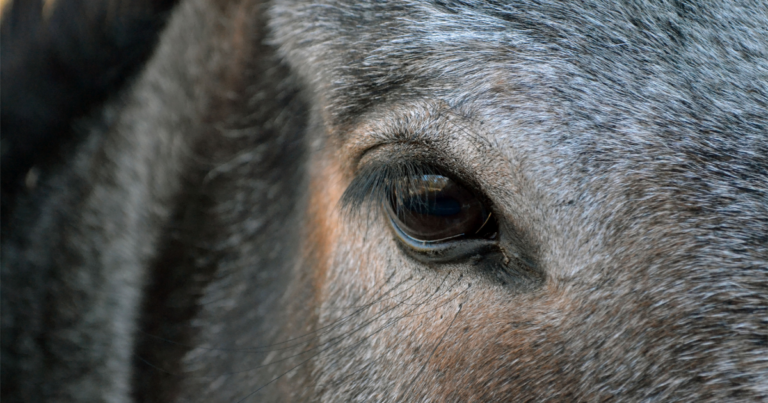The best winter weight management practice could be consistent monitoring of your horse’s body condition.
Credit to: The Horse
Posted by Clair Thunes, PhD

Q: I have the easiest keeper in the barn. He lives out 24/7 on grass with free-choice hay as needed and is fed only a ration balancer. Now that winter is officially here and the grass is sparce, should I be feeding more than just a ration balancer? Does he need more calories to stay warm?
A: This is a common question I think many owners with easy keepers have this time of year. With us hunkering down during miserable weather, enjoying warm drinks, log fires, and winter food, it’s easy to feel like we should be feeding our horses out in the elements more, too. Certainly some horses struggle at this time of year to maintain condition and will need more calories, while others will burn more calories but might not need to be fed more. The extra calorie burn in these horses can be a useful weight management tool.
Knowing whether your horse needs extra calories is best determined by assessing condition. This can be hard during the winter in an outdoor kept horse that might have a full winter coat or be bundled up under blankets, but I would encourage you to not only look at your horse but put your hands on him too. A winter coat can make a horse appear to be carrying more weight than he is, only to result in a nasty shock when he starts shedding out! Familiarize yourself with the 1-to-9 Henneke body condition scoring scale, and then run your hands over the six areas described (the crest of the neck, withers, behind the shoulder, across the rib cage, over the back in the loin area, and the tailhead). Do this every week or two to monitor condition changes over time and catch weight gains and losses quickly before they become problems.
Your horse will be burning more calories to stay warm in colder weather, especially if not blanketed. Whether this is a problem depends on his starting condition. If he came into winter a little overweight, the extra calorie burn can be a useful tool for weight reduction, especially in an easy keeper that may struggle with weight regulation the rest of the year. In fact, not allowing a horse that came into winter a little heavy to lose weight before spring can potentially set him up for compounded weight gain when he has access to pasture again. Over time this can lead to health issues.
On the other hand, if you have managed your horse’s weight well over the summer and, into the autumn, and he came into winter at an ideal weight, then additional weight loss would not be warranted. Therefore, it’s important to know where you currently stand. If he starts to become a little too light in condition, then I would recommend some additional calories during the cold weather.
For an easy keeper, calories are best added by feeding more hay. This is true for most horses in cold weather- not just easy keepers- because the fermentation process necessary for them to digest hay has the added benefit of generating heat that will help keep them warm. Feeding a few extra pounds of hay a day should provide the calories needed to make up for those lost keeping warm.
When monitoring weather conditions to determine if more hay might be needed, keep in mind that horses can struggle to maintain warmth more during wet weather than dry cold weather, if they get wet down to their skin.
By monitoring body condition throughout the winter, you can adjust your feeding program to ensure your horse reaches spring at a good weight. Do not be afraid to allow some weight loss as needed, and remember that horses evolved gaining and losing weight through the seasons. It is our job as managers to keep that fluctuation within an acceptable range, which for me is between a 4.5 and a 6 on Henneke body condition scoring scale.
Do you have an equine nutrition question? The Horse’s editors want to hear from you! Send your questions to theditorialstaff@thehorse.com.
ABOUT THE AUTHOR

Clair Thunes, PhD
Clair Thunes, PhD, is an equine nutritionist who owns Clarity Equine Nutrition, based in Gilbert, Arizona. She works as a consultant with owners/trainers and veterinarians across the United States and globally to take the guesswork out of feeding horses and provides services to select companies. As a nutritionist she works with all equids, from WEG competitors to Miniature donkeys and everything in between. Born in England, she earned her undergraduate degree at Edinburgh University, in Scotland, and her master’s and doctorate in nutrition at the University of California, Davis. Growing up, she competed in a wide array of disciplines and was an active member of the U.K. Pony Club. Today, she serves as the district commissioner for the Salt River Pony Club.




